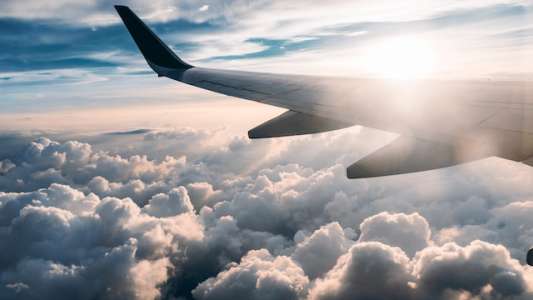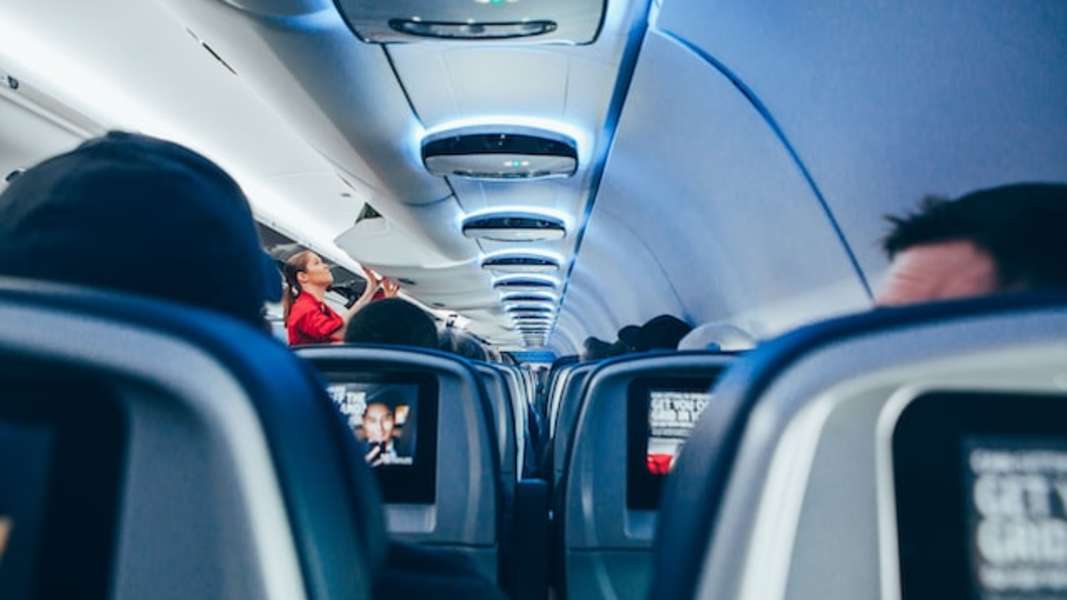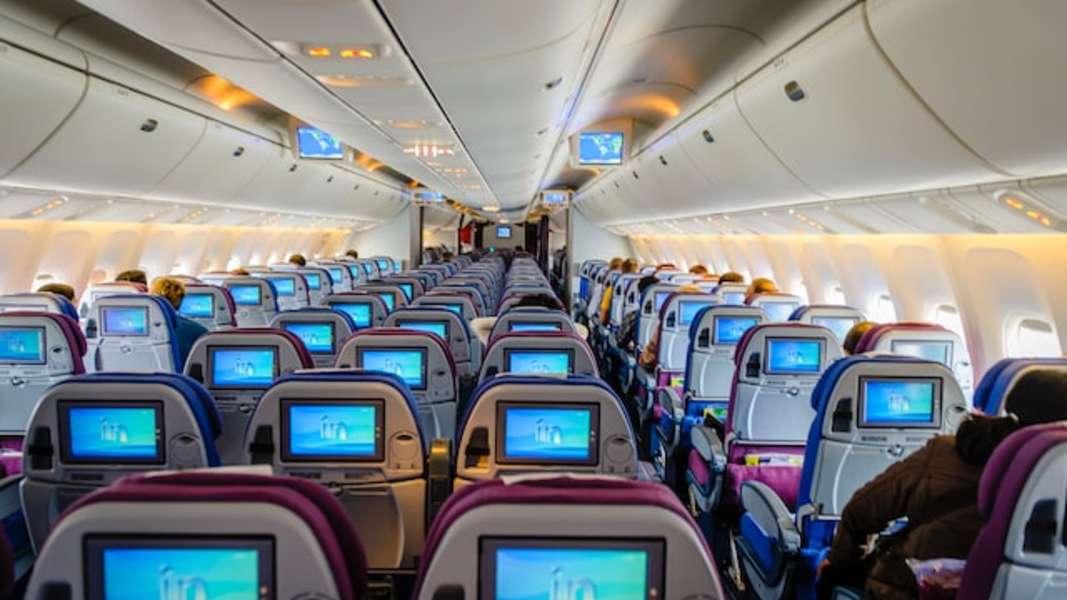What is a flight attendant interview?
When interviewing for a position as a flight attendant, you can expect the interviewer to ask about your customer service experience, ability to work under pressure, and what you would do in various emergency situations.
The interview process can be intense. You’re not only competing against hundreds of other candidates, but you’re also being grilled by a panel of airline representatives.
To help you prepare, we’ve compiled a list of the top 10 flight attendant interview questions you may be asked. Study them carefully and practice your answers until you’re confident you can deliver them with ease.
1. Why do you want to be a flight attendant?
This is likely the first question you’ll be asked in your interview. It’s also one of the most important.
The interviewer wants to see that you have a genuine interest in the role and that you understand what it entails. Avoid giving clichéd or generic answers such as “I want to travel the world” or “I love meeting new people”.
Instead, focus on how your skills and personality make you the best candidate for the position. If you’re a people person, make sure to mention how you enjoy helping others. If you’re a quick learner, explain how you know you can master the job quickly.
2. What qualities would you say are most important for a flight attendant?
When you go on a flight, the last thing you want is a surly flight attendant who is unhappy with their job. You want someone who is professional, yet friendly and accommodating.
So, what qualities should you highlight if you’re asked this question in a flight attendant job interview?
-
Customer service skills: flight attendants need to be able to handle customer complaints and concerns in a calm and efficient manner.
-
Communication skills: they will be responsible for making announcements over the PA system as well as helping passengers with any questions or problems they may have.
-
Proficiency in emergency procedures: they must remain calm under pressure and quickly assess any situation that arises.
If you have these qualities, then you’ll make an excellent flight attendant!
3. How would you deal with a difficult passenger?
As a flight attendant, you will be expected to deal with difficult passengers on a regular basis. The interviewer will want to know if you have the problem-solving and logical thinking skills necessary to handle difficult situations.
To show that you are up for the challenge, you will need to demonstrate that you are able to stay calm in difficult situations and maintain your composure even when things are chaotic.
Be sure to give a specific example. What was the situation and how did you handle it? This will give the interviewer a real-life example of your problem-solving skills.
In addition, highlight any customer service training or conflict resolution courses that you have taken as this will further demonstrate your commitment to providing excellent service, even in challenging situations.
4. What do you know about the airline industry?
If you’re hoping to become a flight attendant, you should be prepared to answer questions about the airline industry during your job interview.
Here are a few tips on how to do just that:
-
Take some time to research the airline you’re applying to. Familiarize yourself with their mission statement and values, and read up on their history. This will give you a good foundation of knowledge to build upon.
-
Take a look at the bigger picture of the airline industry as a whole. Learn about the different types of aircrafts, safety procedures and current trends. This will show that you’re well-rounded and knowledgeable about the industry as a whole.
-
Don’t forget to mention any personal experience you may have with flying. If you travel often for business, or have flown with the airline in question, make sure to mention that. If you’re a frequent flyer, this is especially important.
5. Why did you choose to interview with our airline?
The interviewer is likely to ask why you chose to interview with their company. This question provides an opportunity for you to discuss your interest in the airline and what attracted you to the job.
Some things you may want to mention in your answer include:
-
The airline’s reputation: Is it known for being a great place to work? For having excellent customer service? For its safety record?
-
The airline’s routes: Does the airline fly to destinations that interest you? Are there opportunities to travel internationally?
-
The company culture: What do you know about the airline’s culture? Do they seem like they would be a good fit for you?
6. Tell us about a time when you had to go above and beyond for a passenger
When interviewers ask about a time when you had to go above and beyond for a passenger, they are looking to see if you have the right attitude and skills for the job.
To answer this question effectively, share a story about a time when you provided excellent customer service to a passenger in need. Include details about what you did and why you did it.
Explain how your actions benefited the passenger and the airline. For example, if you helped a passenger who was feeling sick, describe how you made them feel better and prevented them from causing disruption on the flight.
Whatever story you choose to share, highlight the key skills that make you an excellent flight attendant, such as your ability to stay calm under pressure, excellent communication skills, or ability to think on your feet.
7. Describe a time when you had to handle a situation that was outside of your job description
As a flight attendant, you’ll often be faced with unexpected situations that are outside of your job description. Interviewers may ask you to describe such a situation because they are looking to see if you have the ability to deal with them appropriately.
Here are some tips on how to answer:
-
Explain how you handled the situation and what the outcome was.
-
Use specific details and examples to illustrate your point.
-
Be sure to highlight any special skills or training you have that helped you deal with the situation.
-
Emphasize how your actions benefited the passengers, the airline, or both.
-
Conclude by saying that you are confident in your ability to handle anything that comes up during a flight, no matter what it is.
8. What do you think are the most important safety procedures for a flight attendant?
As a flight attendant, you are responsible for the safety of passengers onboard. In a job interview, you may be asked about your thoughts on the most important safety procedures for flight attendants.
To answer efficiently, you may:
-
Talk about the importance of following the protocol and staying calm in an emergency situation.
-
Describe how you would handle different types of emergencies, such as a fire or medical emergency.
-
Explain how you would deal with unruly passengers or those who are not following safety procedures.
-
Emphasize the importance of working as a team with the other flight attendants and pilots to ensure the safety of all passengers onboard.
-
Stress that safety is always the top priority when working as a flight attendant.
9. How would you handle a situation where a passenger has a medical emergency?
When it comes to interviews for flight attendant positions, one question that is bound to come up is “How would you handle a situation where a passenger has a medical emergency?”.
There are a few things to keep in mind when answering:
-
Emphasize that you would take care of the passenger first and foremost. In the event of a medical emergency, the safety of the passenger should always be your top priority.
-
Mention that you would follow all protocols and procedures set forth by the airline. These procedures will likely vary depending on the airline you are interviewing for, so make sure you are familiar with them.
-
Explain that you would provide any necessary assistance to the passenger. This may include administering first aid or CPR if you are trained to do so.
-
Note that you would follow up with the passenger after the emergency has been resolved to check on their condition and see if there is anything further you can do to help them.
10. What is your availability?
As a flight attendant, you will be expected to work long hours, often including nights, weekends and holidays. During a job interview, you will likely be asked about your availability.
If don’t mind working odd hours and being away from home for long periods of time, you should emphasize your enthusiasm for the position and your willingness to work whatever hours are necessary.
However, if you have any commitments that would limit your ability to work certain hours or days, be sure to mention them upfront.



